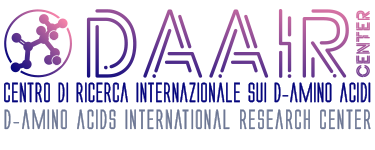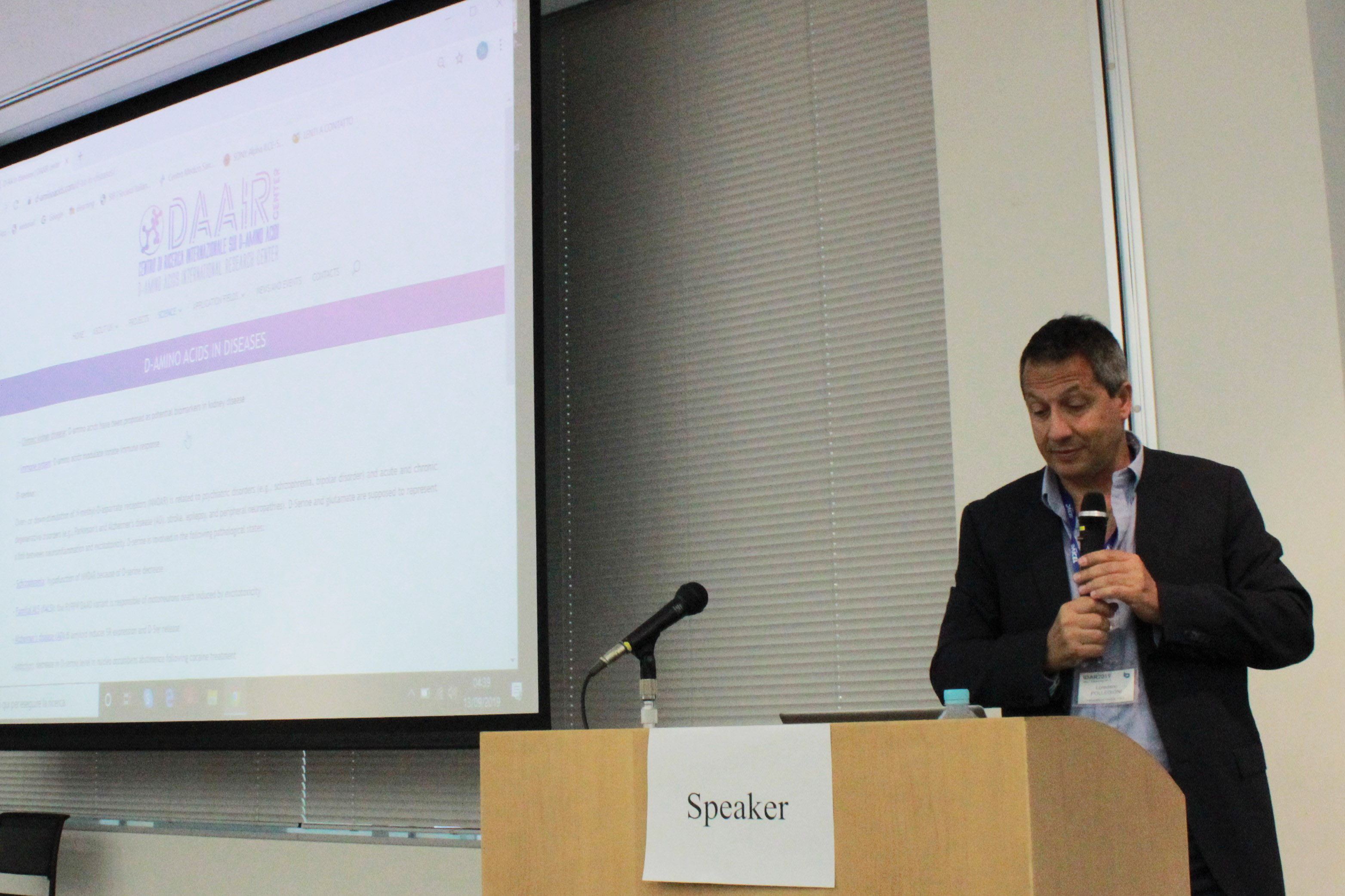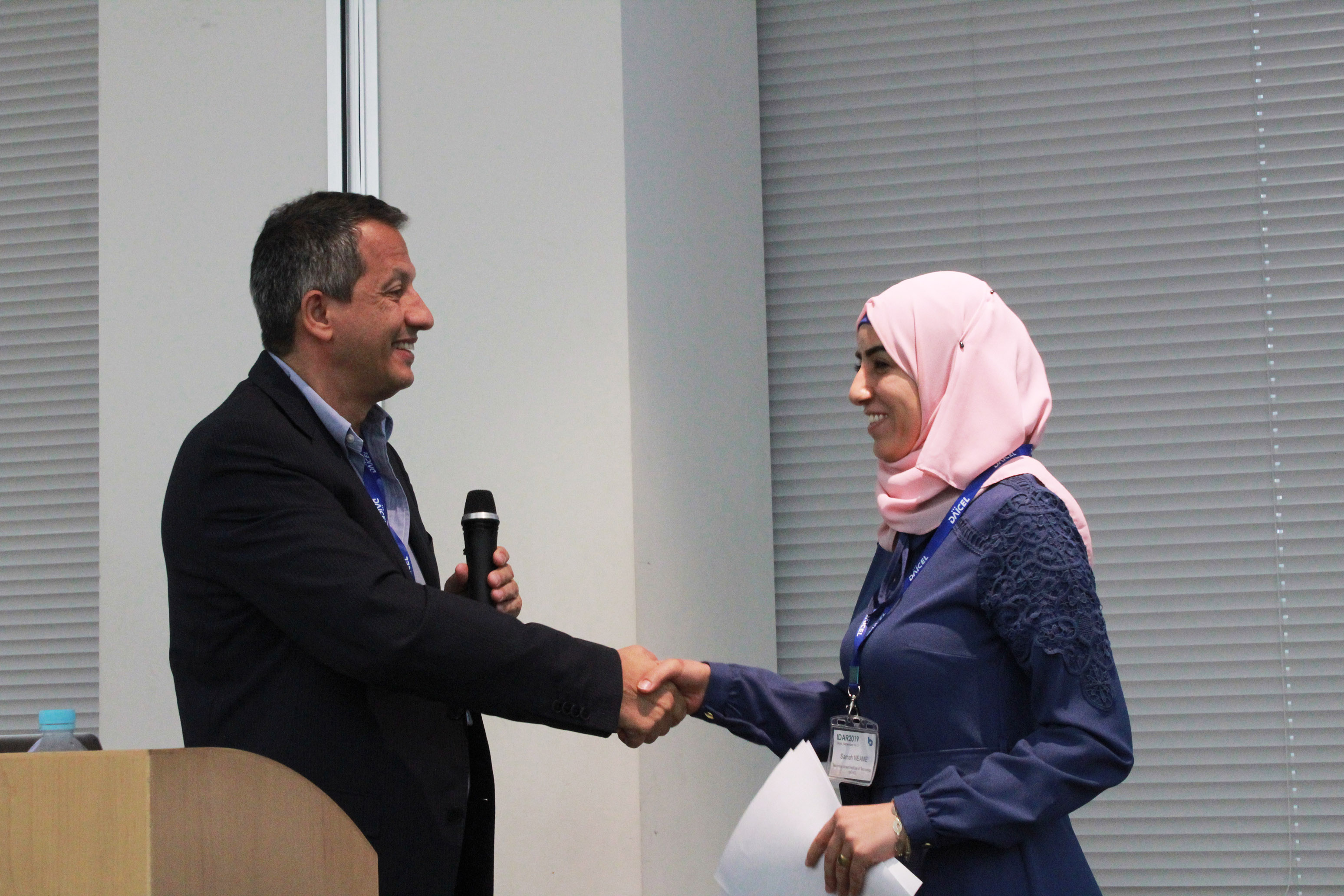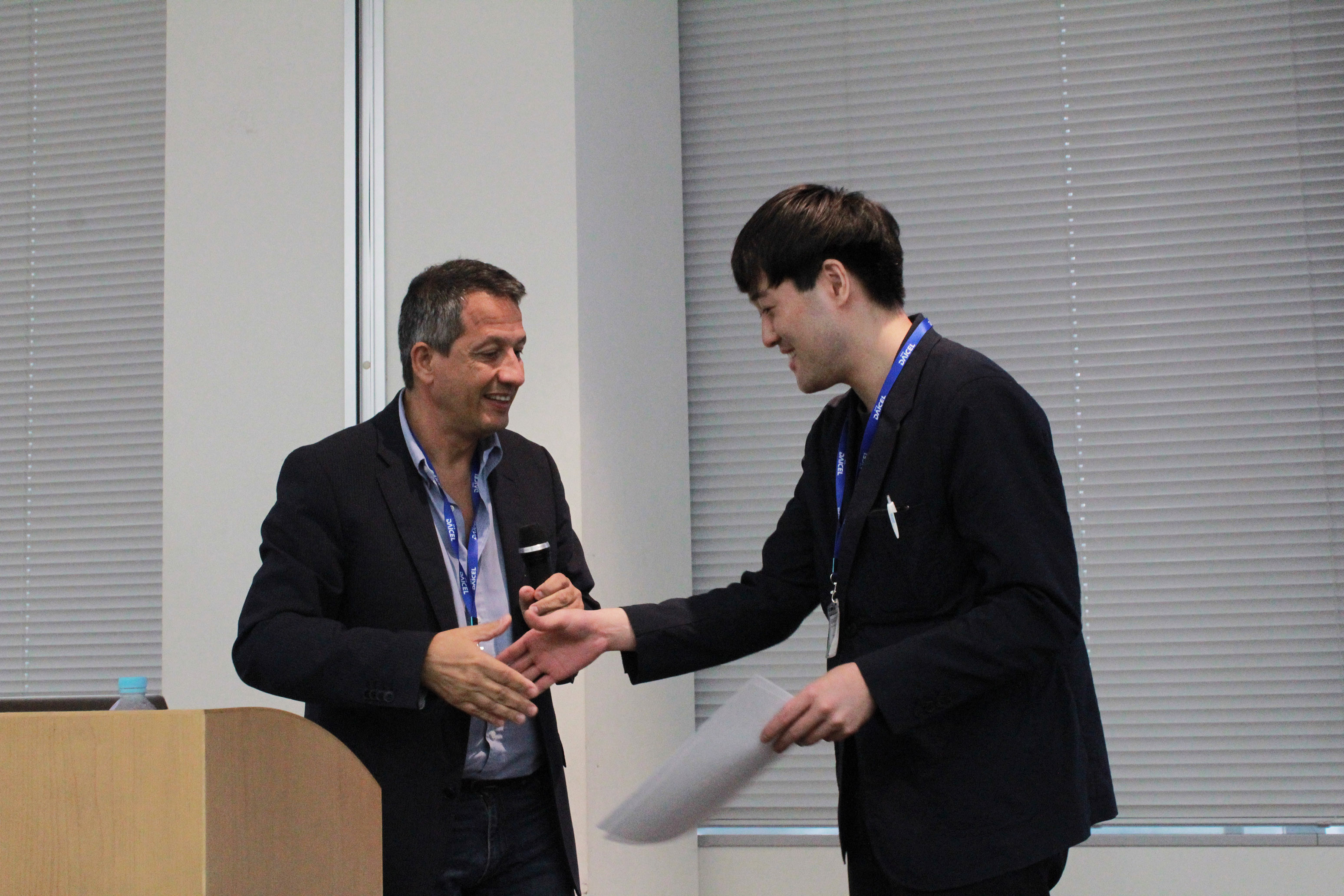
First DAAIR best poster award
We are delighted and proud to announce the winners of the first “best poster award” from the D-Amino Acid International Research Center DAAIR at the IDAR2019 meeting in Tokyo (september 10-13, 2019). The two prizes (500 € each) are intended to identify and support young researchers in their career at early stage.

An international board constituted by Norito Fujii, Hiroshi Homma, Jean-Pierre Mothet, Jonathan Sweedler and Herman Wolosker selected two posters, presented by young researchers, based on the relevance of their work to the D-amino acids field:

Samah NEAME (Dept. of Biochemistry, Technion-Israel Institute of Technology; Rappaport Faculty of Medicine, Haifa, Israel): “An astrocytic PHGDH-dependent serine shuttle controls NMDAR activation and the synthesis of the co-agonists D-serine and glycine” – Poster 06

Yohei KAYANO (Graduate School of Engineering Science, Yokohama National University, Japan): “Separation of tripeptide Phe-Phe-Phe diastereomers by crown ether-type chiral columns and structural difference among the diastereomers on self-assembly” – Poster 36
Compliments to dr. Neame and Kayano for their achievements and a special acknowledge to the organizers of the IDAR2019 meeting for the fruitful scientific environment.
Loredano Pollegioni (DAAIR director)
- Discovery of Peptide Antibiotics Composed of d-Amino Acids- ACS Chem. Biol. (2019) 147:1498-1506
Adaligil et al. report the design of enantiomeric targets based on bacterial cell wall biosynthesis precursors active against Staphylococcus aureus, methicillin-resistant S. aureus, and vancomycin-resistant Enterococci. These molecules possess moderately high antibacterial activity and display no toxicity to both human red blood cells and mammalian cells at these concentrations. MORE
- Investigating brain d-serine: Advocacy for good practices.-Acta Physiol (Oxf). (2019) 226(1):e13257
The exploration of the roles of D-serine in brain physiopathology is a vibrant field that is growing at an accelerating pace. Study of D-amino acids demands accurate methodologies and specific controls, and these have often been lacking. Here Mothet et al. outline best practices for D-amino acid research, with a special emphasis on D-serine. MORE
- Dual role of D-amino acid oxidase in experimental pain models – Eur. J. Pharmacology (2019) 855:98-102
D-Amino acid oxidase (DAAO) is related to pain sensing. This updated review by Sharma et al. reports the present knowledge about the positive (DAAO has been proposed to attenuate pain when exogenously administered) and negative effects of D-amino acid oxidase in pain (DAAO is upregulated in different pain models and contribute to pain by increasing production of hydrogen peroxide, pro-inflammatory cytokines and activation of TRPA-channels). MORE
- L-Serine dietary supplementation is associated with clinical improvement of loss-of-function GRIN2B-related pediatric encephalopathy- Sci.Signaling (2019) 12:eaaw0936
This paper from Soto et al. reports about the use of L-serine powder (added to the food or drink for up 17 months) to a patients with Rett-like syndrome who had a single point mutation in the subunit GluN2B of NMDA recepetor. Adding L-serine powder to the patient’s food or drink was carried out over the course of more than a year. Such an administration increased the D-serine level in the plasma and cerebrospinal fluid and improved all neurodevelopment assessments, suggesting this treatment to additional disorders associated with NMDA receptor deficiency. MORE
The D-amino acids International Research Center “DAAIR“ has been established in Gerenzano (Varese, Italy) in 2019 with the aim to support and perform scientific research projects and activities on the field of D-amino acids (Director Loredano Pollegioni). The Center, located inside the Fondazione Istituto Insubrico Ricerca per la Vita, is aimed to represent a pole of excellence at international level for dissemination and research involving the D-amino acids.
The guiding principle is support the research projects aimed to investigate the involvement of D-amino acids in main physiological processes, from bacteria to humans. The ultimate goal is to actively participate to the elucidation of the mechanisms by which the D-amino acids perform specific functions, and to identify their presence and concentration in different organisms and compartments, also with regards to well-established functional states, with particular emphasis to pathological states. Understand the involvement of D-amino acids in important diseases as a way to set up novel therapeutic strategies.
Contacts: info@d-aminoacids.com;
director@d-aminoacids.com;
www.d-aminoacids.com
mailing address: info@d-aminoacids.com
Commenti recenti